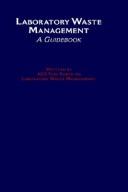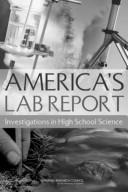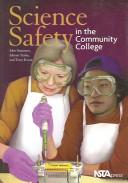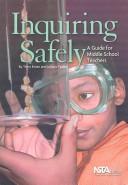| Listing 1 - 10 of 48 | << page >> |
Sort by
|
Book
ISBN: 1315116502 135165182X Year: 2017 Publisher: Boca Raton, FL : CRC Press,
Abstract | Keywords | Export | Availability | Bookmark
 Loading...
Loading...Choose an application
- Reference Manager
- EndNote
- RefWorks (Direct export to RefWorks)
"Tetsu Natsume of Sony Computer Science Labs (Sony CSL) has been pioneering technology promotion for a decade. As he seeks marketplace opportunities for ground-breaking research, he plays the role of a Technology Producer -- a role that will be increasingly important as organizations seek optimally efficient and effective applications of basic research. Natsume's task has been greatly facilitated by his association with Sony CSL, a research lab founded by co-author Mario Tokoro. While CSL is owned by SONY, it nevertheless operates almost entirely independently. At CSL, a diverse, cosmopolitan group of talented researchers are free to explore any idea that might one day change the world. Natsume's task is to optimise that process by identifying the best path to the market for the new insights that pour out of CSL. Functioning somewhat like a movie producer, Natsume has blazed a trail for technology promoters the world over. He explains his techniques for overcoming challenges and embracing opportunities. His "10 core principles of technology promotion", which offer the reader an especially valuable framework for moving between the very different worlds of the lab and the marketplace, cover the importance of appropriate timing, speed, commitment and mindset, while being rigorously simple and boldly ambitious.This book is an eye-opening primer for anyone interested in realising and optimising the commercial value of basic research."--Provided by publisher.
Research, Industrial. --- Technological innovations. --- New products. --- Sony Computer Science Laboratories.
Book
ISBN: 9264014101 Year: 2005 Publisher: Paris : OCDE-Organisation de cooperation et developpement economiques,
Abstract | Keywords | Export | Availability | Bookmark
 Loading...
Loading...Choose an application
- Reference Manager
- EndNote
- RefWorks (Direct export to RefWorks)
Cette publication réunit tous les documents de l’OCDE sur les bonnes pratiques de laboratoire et la vérification de leur respect. Elle reproduit en annexe les trois Décisions du Conseil de l’OCDE relatives à l’acceptation mutuelle des données pour l’évaluation des produits chimiques. Elle présente les normes internationales concernant la qualité des données réglementaires sur la sécurité sanitaire et environnementale des substances et produits chimiques qui sont produits au moyen d’essais non cliniques – les Principes de l’OCDE relatifs aux bonnes pratiques de laboratoire –, ainsi que des documents de consensus et des documents consultatifs portant sur leur interprétation et leur application. On y trouvera aussi les documents d’orientation élaborés par l’OCDE à l’intention des pouvoirs publics sur la vérification du respect des bonnes pratiques de laboratoire. Cet ouvrage présente donc un point complet des connaissances concernant les bonnes pratiques de laboratoire et la vérification de leur respect.
Chemical laboratories --- Laboratories --- Quality control. --- Laboratory facilities --- Research buildings --- Science laboratories --- Scientific laboratories --- Chemistry laboratories --- Science rooms and equipment
Book
ISBN: 1935082760 9781935082767 Year: 2015 Publisher: Falls Church, VA American Industrial Hygiene Association
Abstract | Keywords | Export | Availability | Bookmark
 Loading...
Loading...Choose an application
- Reference Manager
- EndNote
- RefWorks (Direct export to RefWorks)
Environmental laboratories --- Laboratories --- Quality control. --- Laboratory facilities --- Research buildings --- Science laboratories --- Scientific laboratories --- Science rooms and equipment
Periodical
Abstract | Keywords | Export | Availability | Bookmark
 Loading...
Loading...Choose an application
- Reference Manager
- EndNote
- RefWorks (Direct export to RefWorks)
Laboratories --- Laboratory facilities --- Research buildings --- Science laboratories --- Scientific laboratories --- Science rooms and equipment --- Equipment and supplies --- Equipment and supplies. --- Chemistry --- Clinical Chemistry

ISBN: 0841228493 Year: 1994 Publisher: Washington
Abstract | Keywords | Export | Availability | Bookmark
 Loading...
Loading...Choose an application
- Reference Manager
- EndNote
- RefWorks (Direct export to RefWorks)
Laboratories --- Laboratory facilities --- Research buildings --- Science laboratories --- Scientific laboratories --- Science rooms and equipment --- Waste disposal&delete& --- Handbooks, manuals, etc --- Chemical laboratory practice --- Waste disposal

ISBN: 1280286423 9786610286423 0309652863 9780309652865 9780309551007 0309551005 0309096715 9780309096713 0309139341 9780309139342 9781280286421 6610286426 0309133602 9780309133609 Year: 2006 Publisher: Washington, D.C. National Academies Press
Abstract | Keywords | Export | Availability | Bookmark
 Loading...
Loading...Choose an application
- Reference Manager
- EndNote
- RefWorks (Direct export to RefWorks)
Science --- Education, Secondary --- Laboratories --- Laboratory facilities --- Research buildings --- Science laboratories --- Scientific laboratories --- Science rooms and equipment --- Study and teaching (Secondary) --- Curricula

ISBN: 9780873552714 9786611217785 1933531967 9781933531960 0873552717 1281217786 Year: 2006 Publisher: Arlington, Va. NSTA Press
Abstract | Keywords | Export | Availability | Bookmark
 Loading...
Loading...Choose an application
- Reference Manager
- EndNote
- RefWorks (Direct export to RefWorks)
Meet the unique safety needs of students with limited science training!Science Safety in the Community College is specifically designed to help two-year college faculty-especially adjunct faculty-lay a good safety foundation for students in introductory science courses-even when they have widely differing science backgrounds.
Science --- Science rooms and equipment --- Laboratories --- Laboratory facilities --- Research buildings --- Science laboratories --- Scientific laboratories --- Classrooms --- Study and teaching (Higher) --- Safety measures.

ISBN: 1281758361 9786611758363 1935155954 9781935155959 9780873552011 0873552016 0873552016 9781281758361 6611758364 Year: 2003 Publisher: Arlington, Va. NSTA Press
Abstract | Keywords | Export | Availability | Bookmark
 Loading...
Loading...Choose an application
- Reference Manager
- EndNote
- RefWorks (Direct export to RefWorks)
Not your average safety guide, Inquiring Safely is a uniquely readable resource from experienced teachers who know both middle school science content and how middle school students behave. The authors go beyond the standard rules and regulations to discuss safety concepts in the context of real classrooms-and to help you make students your partners-in-safety within an inquiry-based science curriculum.
Science --- Science rooms and equipment --- Laboratories --- Laboratory facilities --- Research buildings --- Science laboratories --- Scientific laboratories --- Classrooms --- Study and teaching (Middle school) --- Safety measures.
Book
ISBN: 9461661991 9789461661999 9789462700680 9462700680 Year: 2016 Publisher: Leuven
Abstract | Keywords | Export | Availability | Bookmark
 Loading...
Loading...Choose an application
- Reference Manager
- EndNote
- RefWorks (Direct export to RefWorks)
Het laboratorium met zijn glanzende proefbuizen en steriele witte jassen geniet vandaag een onbetwiste autoriteit als bron van kennis. Aanvankelijk waren universiteiten de eersten om het laboratorium als site van wetenschapsbeoefening te introduceren. In 'Wetenschap op de proef' schetst Lyvia Diser hoe ook de Belgische staat daarna de mogelijkheden verkende om laboratoriumwetenschap in zijn beleid een plaats te geven. De auteur toont aan dat de onbetwiste objectiviteit en autoriteit van het laboratorium het resultaat was van een subtiel gevoerde en soms verbeten strijd tussen verschillende belangengroepen, waarbij de laboratoriumwetenschap binnen overheidsrangen werd getemd tot een niet-controversieel en hanteerbaar instrument, in het licht van de vooruitgang van de Belgische staat. De lezer krijgt zo een verrassende inkijk in de verborgen allianties tussen staat en wetenschap in de Belgische geschiedenis rond de eeuwwisseling.
Science and state --- Laboratories --- Laboratory facilities --- Research buildings --- Science laboratories --- Scientific laboratories --- Science rooms and equipment --- Science --- Science policy --- State and science --- State, The --- History. --- Government policy --- History
Book
ISBN: 3110444437 9783110444438 9783110437058 3110437058 9783110444438 3110437058 3110444399 9783110444391 Year: 2016 Publisher: De Gruyter
Abstract | Keywords | Export | Availability | Bookmark
 Loading...
Loading...Choose an application
- Reference Manager
- EndNote
- RefWorks (Direct export to RefWorks)
Research Laboratory Safety explains the most important prerequisite when working in a laboratory: Knowing the potential hazards of equipment and the chemical materials to be employed. Students learn how to assess and control risks in a research laboratory and to identify a possible danger. An approach on the hazard classes such as physical, chemical, biological and radiation hazards is given and exercises to each class prepare for exams.
Laboratories --- Chemical laboratories --- Hazardous substances --- Chemistry laboratories --- Laboratory facilities --- Research buildings --- Science laboratories --- Scientific laboratories --- Science rooms and equipment --- Safety measures
| Listing 1 - 10 of 48 | << page >> |
Sort by
|

 Search
Search Feedback
Feedback About UniCat
About UniCat  Help
Help News
News